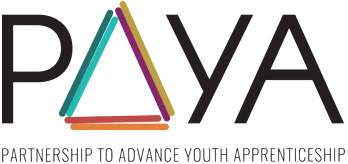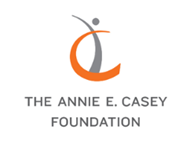Project Overview
To build the evidence base on high-quality youth apprenticeship programs by examining their implementation and outcomes. This four-year study (2024–2028) includes an outcomes study to assess how apprentices and employers benefit from participation and an implementation study to understand how programs operate, how partners work together, and the experiences of implementors, apprentices, and employers.
Youth apprenticeship programs offer a critical bridge between education and employment for young people and K-12 systems, limited research exists on what makes these programs effective and scalable. This study responds to that gap by generating actionable insights to inform program design, policy, and scaling efforts. Ultimately, this study aims to provide policymakers, practitioners, employers, apprentices, and parents with insights and learnings that can support further development, implementation, and expansion of high-quality youth apprenticeship programs.


- Jobs for the Future
- PAYA - a national initiative of New America to expand and strengthen youth apprenticeship programs
- Eight youth apprenticeship programs across the country




As more communities look to integrate youth apprenticeship into their K-12 systems, this study explores the experiences and outcomes of young people and employers, while also exploring how programs operate to achieve those results.
Led by independent researchers from Mathematica and Jobs for the Future, the study combines implementation research with outcomes analysis to answer key questions: What makes youth apprenticeship programs effective, for whom, and under what conditions? The study has two key components: 1) an outcomes study that captures evidence on the experiences of apprentices and employers; and 2) an implementation study that identifies learnings on program design, promising practices, challenges, and strategies for sustaining and expanding youth apprenticeship.
The study is being conducted in close collaboration with the study’s funders, the Partnership to Advance Youth Apprenticeship (PAYA) at New America, and with guidance from the study’s Research Advisory Committee (RAC), comprised of youth apprentices and youth apprenticeship practitioners. PAYA is a national initiative dedicated to expanding access to high-quality apprenticeship opportunities for high-school aged youth by supporting local innovation, policy development, and research. The eight youth apprenticeship programs participating in this study are members of PAYA’s network, representing diverse approaches to strengthening and scaling youth apprenticeship across the country.
The study reflects Mathematica’s commitment to using evidence to inform policy and improve programs.
Related Staff
Efficiency Meets Impact.
That's Progress Together.
To solve their most pressing challenges, organizations turn to Mathematica for deeply integrated expertise. We bring together subject matter and policy experts, data scientists, methodologists, and technologists who work across topics and sectors to help our partners design, improve, and scale evidence-based solutions.
Work With Us



